Experiencing cramps when you're PMSing or have your period is one thing, but cramps during pregnancy can cause any mom-to-be to worry. According to the American Pregnancy Association (APA), cramps are a normal part of pregnancy in most cases, since they often result from normal changes that occur during your baby's development.
"There are several main causes of pelvic cramping during pregnancy and fortunately most of them are very benign and transient," assures Andrew Croak DO, MS, FACOOG, a board-certified, fellowship-trained urogynecologist in Toledo, Ohio. "Most pelvic cramping during pregnancy is confined to the uterus, which stretches with the growth of the baby and may occasionally contract or cramp."
Of course, there are times when that eyebrow-raising sensation or pain might be cause for concern, and you should never hesitate to call your doctor if you're worried about miscarriage — especially if you're also spotting or bleeding or the pain is severe. But without any other symptoms, it's more likely something else. Here, how you can identify six major causes of cramps during pregnancy and the best course of action for each.
Braxton-Hicks: What They Are
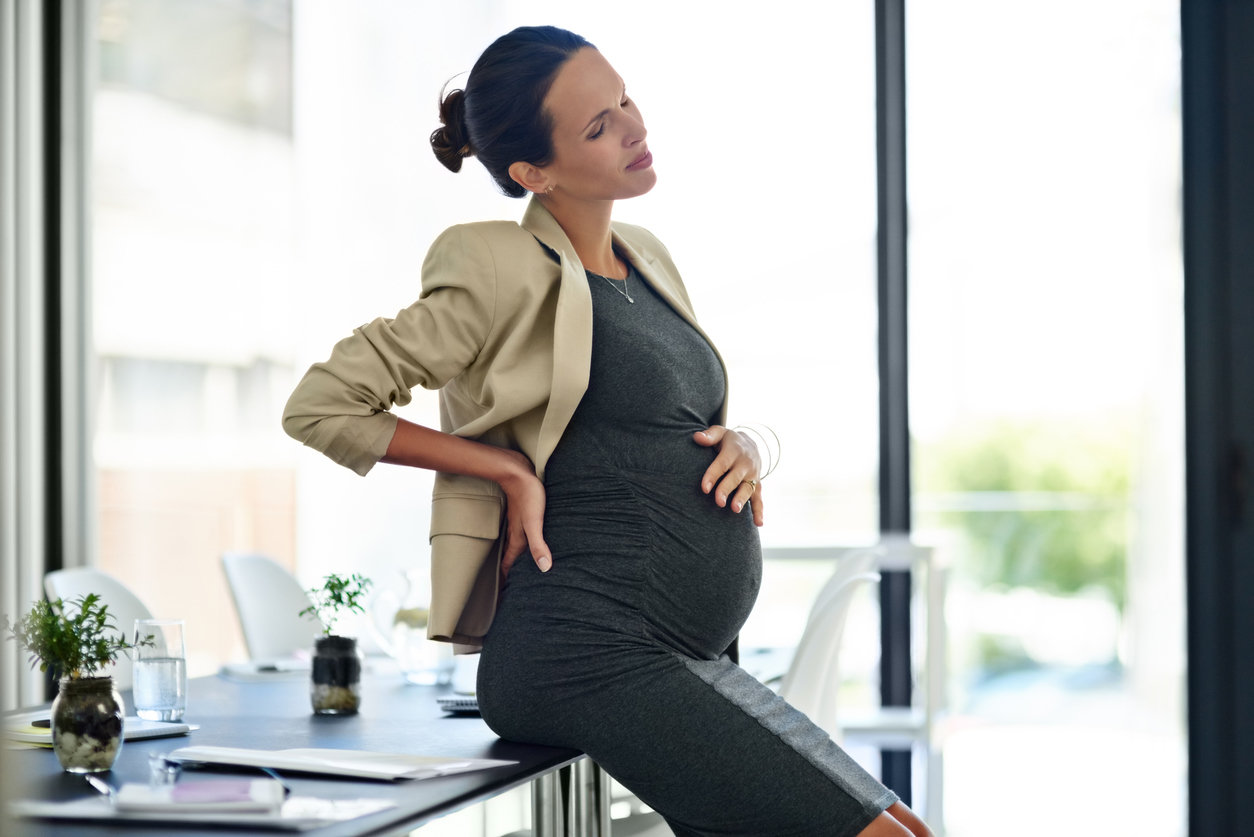
"The most common cause of uterine cramping during pregnancy is a Braxton-Hicks contraction," say Dr. Croak. "These 10- to 20-second contractions may start as early as 20 weeks [into pregnancy] and may occur even as frequently as every 10 to 20 minutes. They may be hardly noticeable or enough to make an expectant mother pause. In the third trimester particularly, these may be seen as 'warm-up contractions' in preparation for delivery. These contractions do not usually mean impending labor or cervical dilation and effacement (the process by which the cervix prepares for delivery by getting softer, shorter, and thinner)."
In other words, your body's just getting ready for delivery. The APA says that Braxton-Hicks contractions tend to be infrequent, unpredictable, non-rhythmic, and more uncomfortable than painful. Unlike labor contractions, they won't increase in intensity or frequency, and they'll taper off and then disappear altogether.
Braxton-Hicks: What to Do
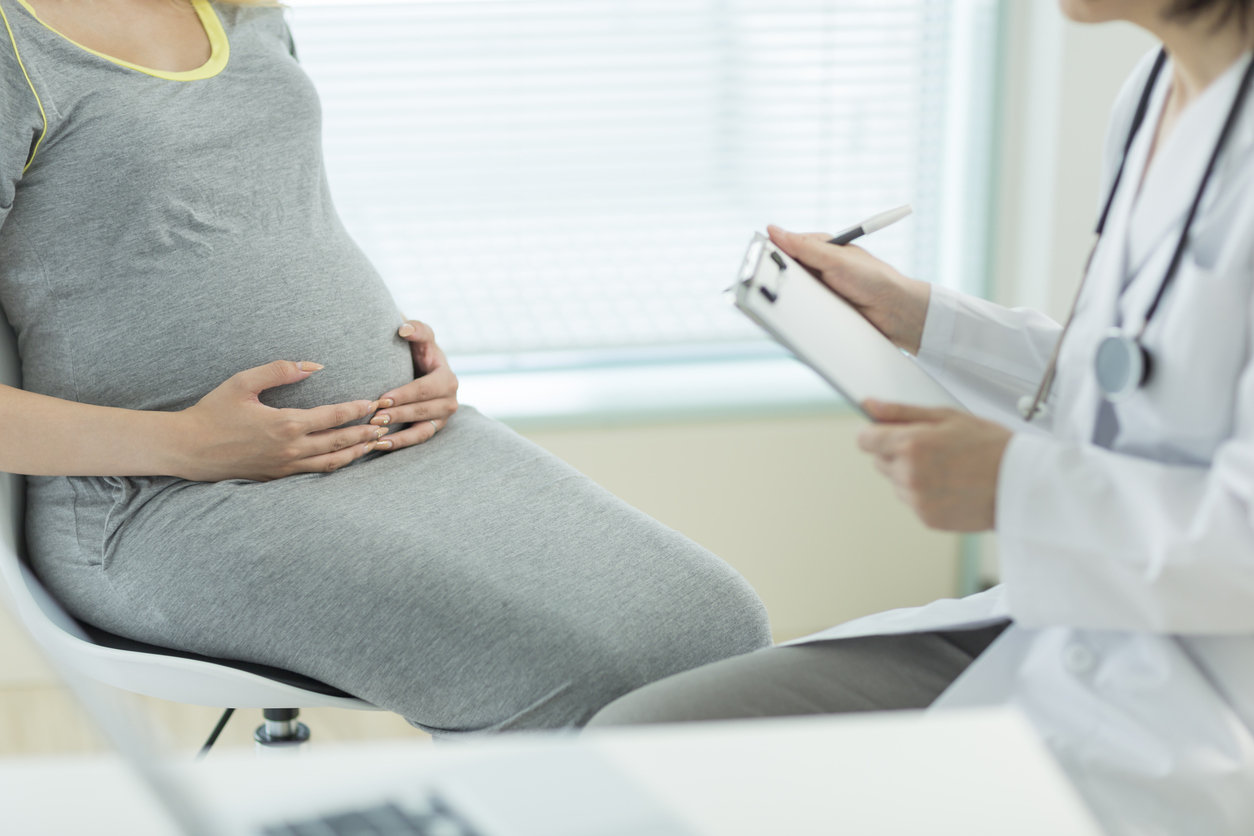
If you suspect the cramps are Braxton-Hicks, first ensure you're getting proper hydration (drink lots of water!) — and then change positions. If the contractions stop, the cramps can be chalked up to Braxton-Hicks. If they don't, they're likely real contractions, and you need to call your health-care provider ASAP.
Round Ligament Pain: What It Is
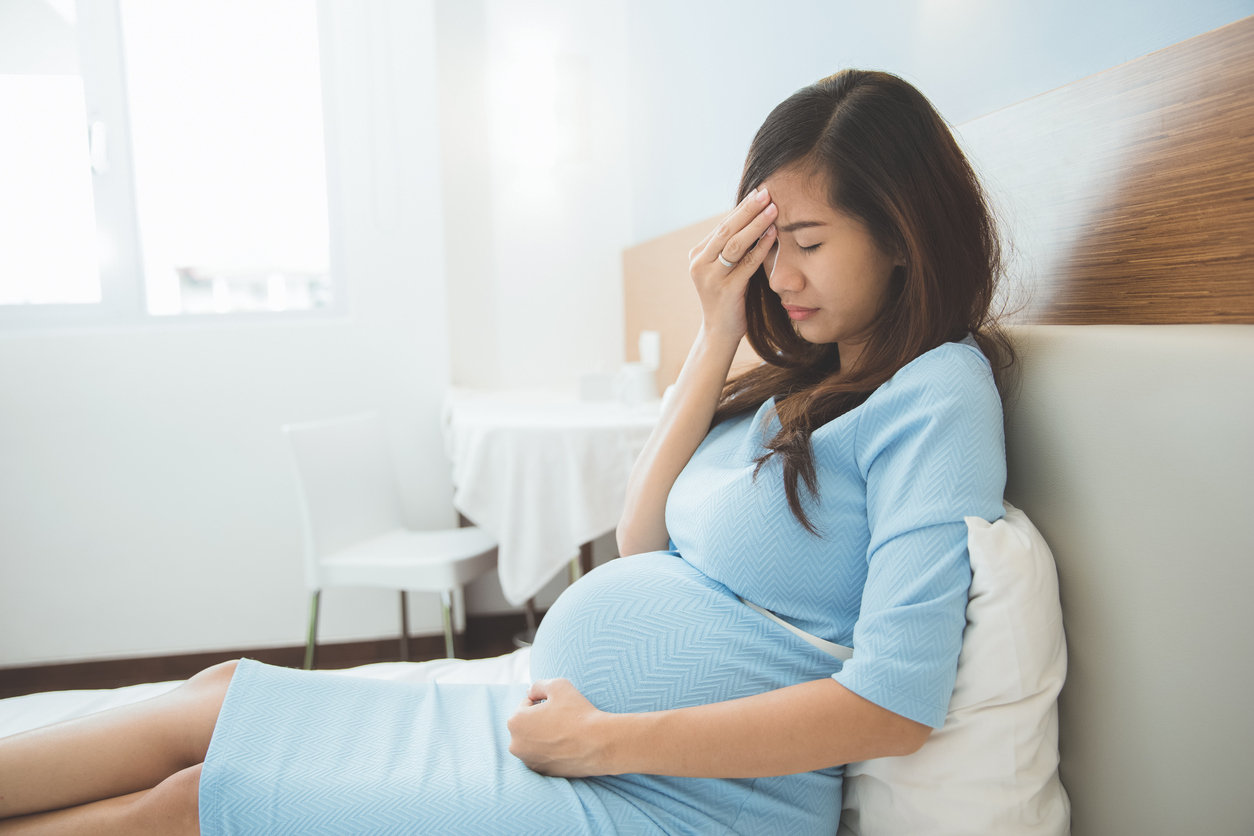
Round ligament pain is another common sensation that feels like cramps. This is totally harmless and most common in the second trimester. You may experience it as a sharp pain in your abdomen or hip area that is either on one side or both, according to the APA. Some women even report pain that extends into the groin area.
"As the uterus grows and stretches to accommodate the baby's growth, it may rotate or pull on the round ligaments of the uterus which attach the uterus to the pelvic sidewalls," explains Dr. Croak. "Also, uterine expansion and the pregnancy hormone relaxin may cause the ligaments of the bony pelvis to mal-align or 'sheer,' thus causing crampy pain of the muscular skeletal pelvic floor."
More from CafeMom: If You're Pregnant & Your Toilet Seat Turned Blue, You Are Not Alone
Round Ligament Pain: What to Do

Dr. Croak points out that round ligament pain is often treated similarly to Braxton-Hicks cramps, by changing positions or getting rest, both of which may allow ligaments to stretch more gradually and can help alleviate any pain. But if you're experiencing these kinds of cramps chronically, you may want to explore options like gentle medical massage, osteopathic manipulation with indirect techniques, and pelvic floor therapy, Dr. Croak notes. Discuss these methods with your doctor first, of course.
Weak Pelvic Floor or Prolapse: What It Is

"Pregnancy hormones may cause the tissues of the pelvic floor to stretch or weaken," Dr. Croak says. "This may cause crampy type pelvic pressure to the pelvic floor and vagina." He says some of is patients who've had more than one child experience a prolapse — when the pelvic organs can slip out of place and create a bulge in the vagina — which can certainly create discomfort as well.
Weak Pelvic Floor or Prolapse: What to Do

"Typically, I use pelvic floor therapy, pelvic rest, and or a pessary to help pregnant mothers with prolapse reduce their symptoms," Dr. Croak explains. A pessary is a small device inserted into the vagina that helps support the organs.
More from CafeMom: 20 Baby Girl Names That Exploded in Popularity This Decade
Constipation: What It Is
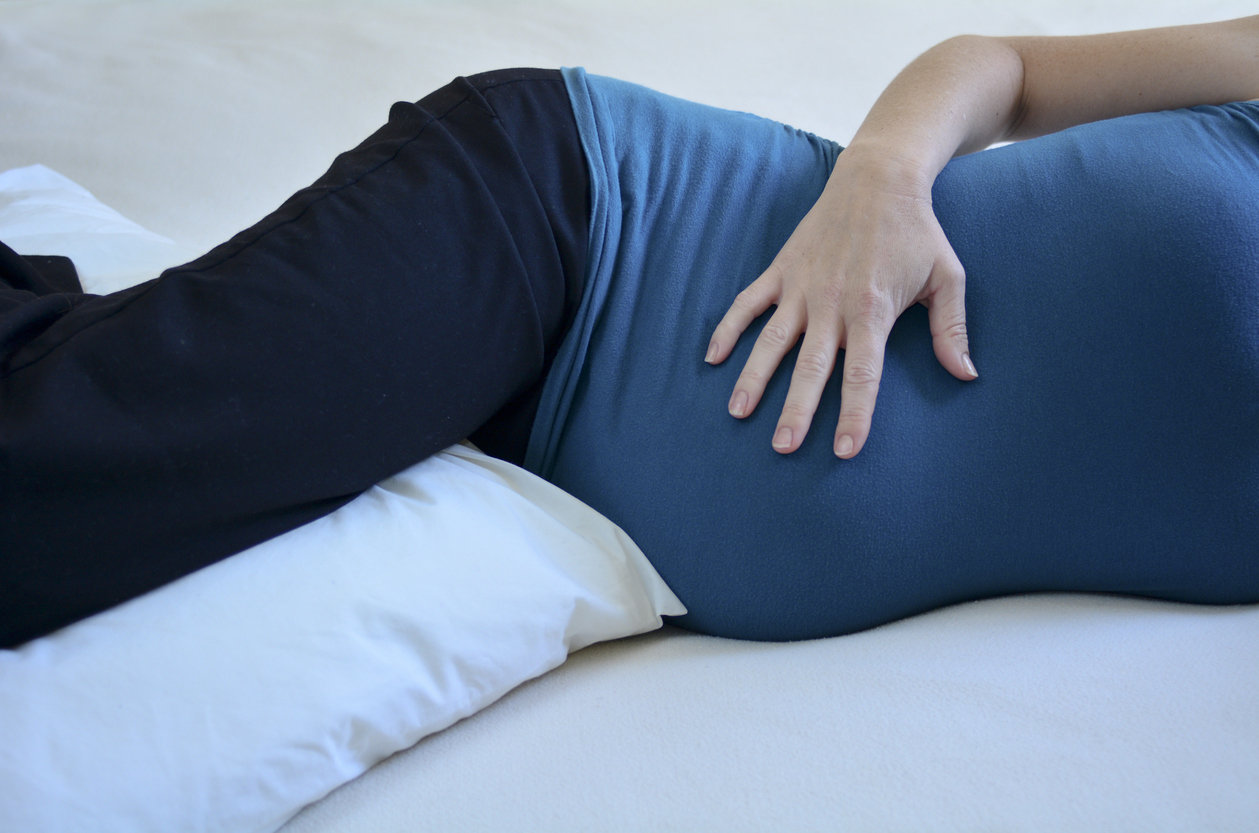
Although you can experience constipation *anytime*, it's particularly common during pregnancy — and can be terribly painful, leading to cramping sensations, says Katherine O'Rourke, MD, OB/GYN at Loyola University Medical Center in Maywood, Illinois. "If you have to strain a lot to have bowel movements or the stool is hard and lumpy/bumpy you most likely have constipation," she says.
Constipation: What to Do
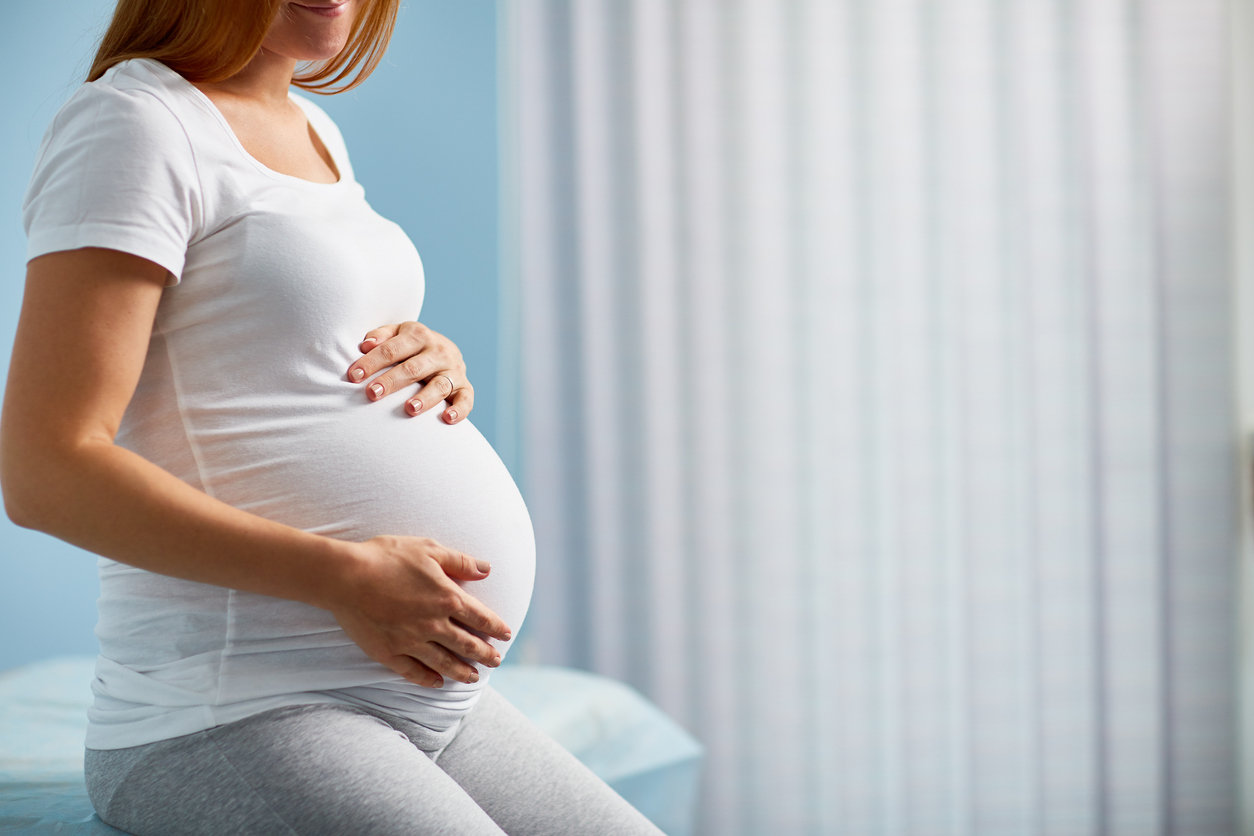
"The first step to treat constipation is to increase the fiber in your diet and drink more water," explains Dr. O'Rourke. "If you still have constipation, you can try a gentle laxative such as MiraLax which pulls extra water into the stool to make it easier to pass without affecting the way the bowel functions and causing bothersome side effects, like extra cramping and gas."
UTI: What It Is

You can get a urinary tract infection, or UTI, anytime — not just when you're expecting — but you're at increased risk for a UTI between your sixth and 24th weeks of pregnancy, thanks to changes in your urinary tract. (As the uterus grows, it can block the drainage of urine from the bladder, causing an infection, the APA notes.) If you do happen to get one, it could be the cause of cringe-causing discomfort.
"A urinary tract infection can cause some cramping and pain in the lower abdomen," explains Dr. O'Rourke. "It is often associated with a frequent sensation of needing to urinate, burning when urinating, and sometimes blood in the urine."
More from CafeMom: The Most Bizarre Pregnancy Side Effects You've Never Heard Of
UTI: What to Do
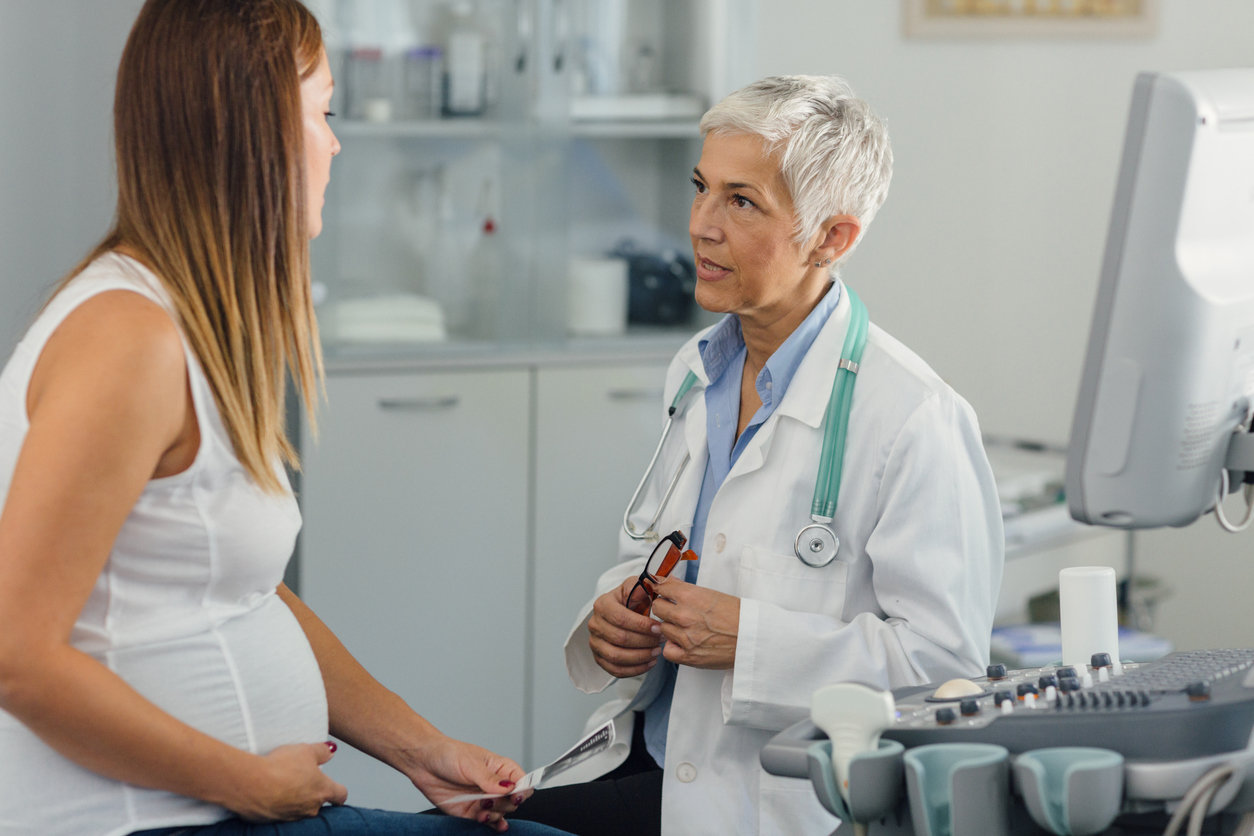
"It is important to recognize UTIs early in pregnancy and treat them, as pregnant women are more likely to have bladder infections spread and cause a serious infection in the kidneys," says Dr. O'Rourke. So if you suspect your cramps are associated with a UTI — a burning sensation when you urinate is a key red flag! — see your doctor for proper treatment, which is usually a three- to seven-day course of antibiotics that are safe for you and the baby.
You should call your doctor if you have fever, chills, lower stomach pains, nausea, vomiting, contractions, or if after taking medicine for three days, you're still experiencing burning when you urinate.
Preterm Labor: What It Is

Preterm labor is defined as labor that occurs before the 37th week of pregnancy. It occurs in 12 percent of all pregnancies.
Any combination of the following symptoms is a sign of preterm labor: menstrual-like cramping along with increased pressure and abdominal pain, five or more uterine contractions in an hour, watery fluid leaking from your vagina (indicating your water's broken), low and dull backache below the waistline, pelvic pressure that feels like your baby is pushing down, abdominal cramps that may occur with or without diarrhea, and/or an increase or change in vaginal discharge.
If you're concerned — and especially if you're having vaginal bleeding accompanied by abdominal cramps or pain — calling your health care provider is always the right move, even if it ends up being a false alarm.
Preterm Labor: What to Do
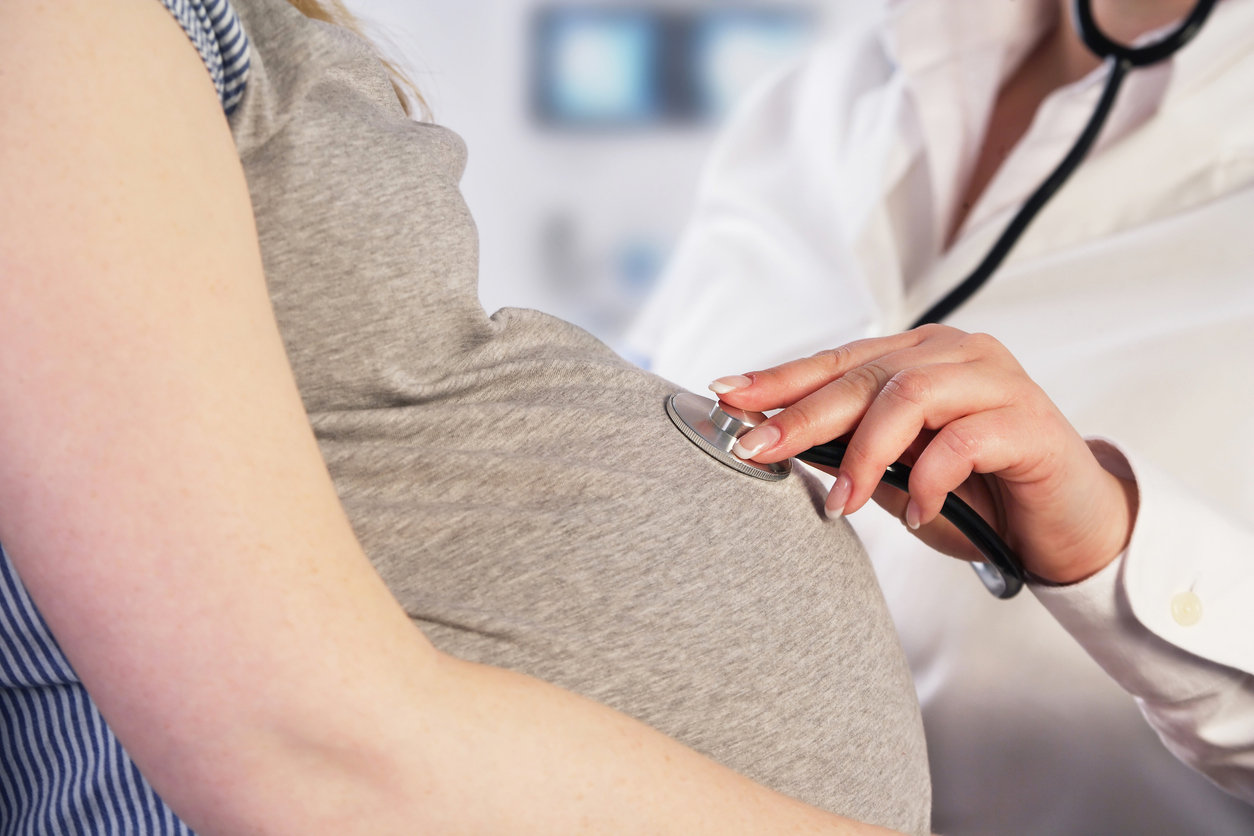
If you're concerned that you may be going into preterm labor, you should contact your health care provider immediately. If that's the case, there are several interventions that can put the brakes on the process (like magnesium sulfate) or you may be prescribed bed rest.
It's important to note that severe cramping and bleeding during the first trimester might indicate miscarriage, Dr. O'Rourke says. Most miscarriages occur within the first 13 weeks. "Be sure to call your doctor if you have severe cramping that does not improve and/or bleeding like a period, as this may indicate that you are having or are at risk of a miscarriage," she notes.




